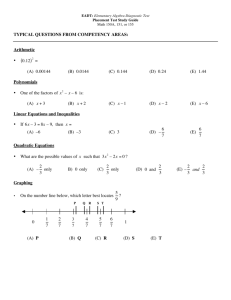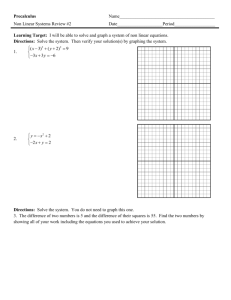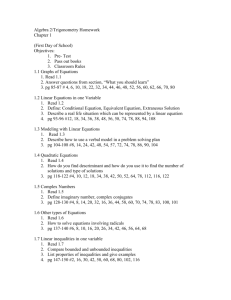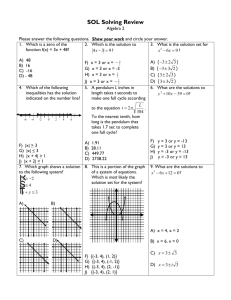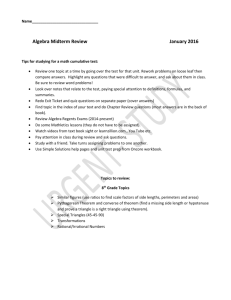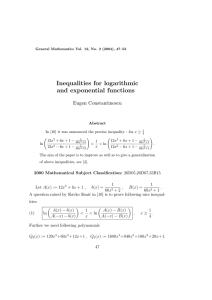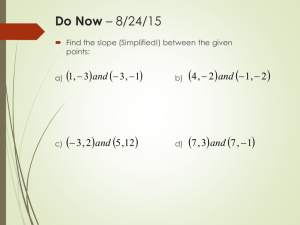Transition to Algebra Guided Notes
advertisement
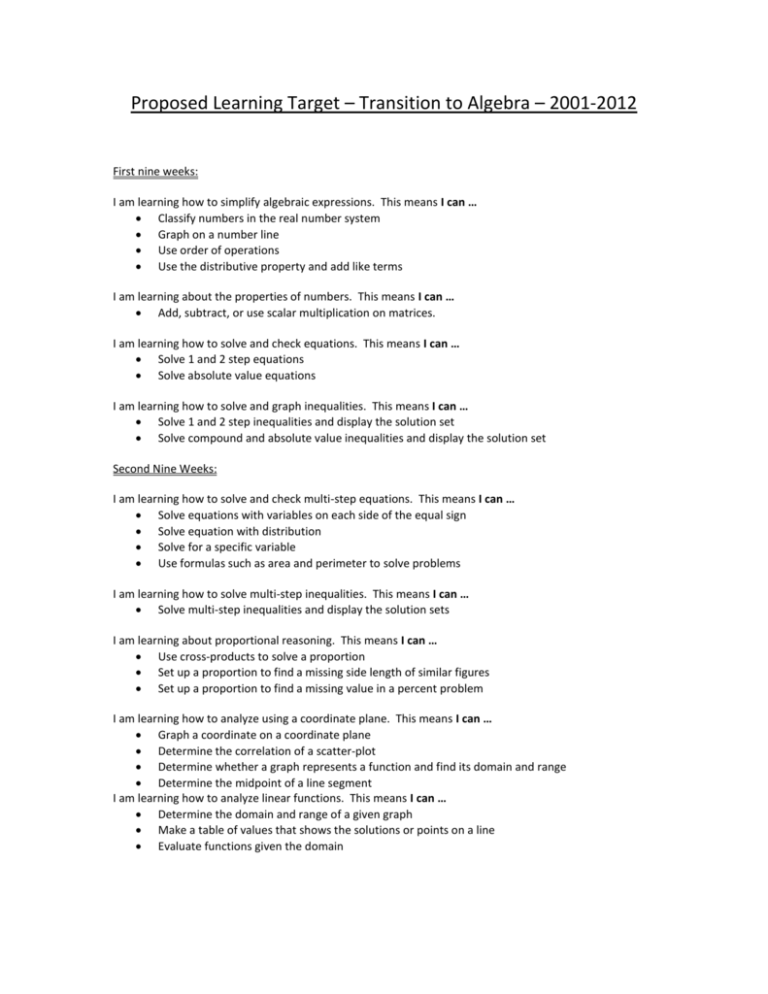
Proposed Learning Target – Transition to Algebra – 2001-2012 First nine weeks: I am learning how to simplify algebraic expressions. This means I can … Classify numbers in the real number system Graph on a number line Use order of operations Use the distributive property and add like terms I am learning about the properties of numbers. This means I can … Add, subtract, or use scalar multiplication on matrices. I am learning how to solve and check equations. This means I can … Solve 1 and 2 step equations Solve absolute value equations I am learning how to solve and graph inequalities. This means I can … Solve 1 and 2 step inequalities and display the solution set Solve compound and absolute value inequalities and display the solution set Second Nine Weeks: I am learning how to solve and check multi-step equations. This means I can … Solve equations with variables on each side of the equal sign Solve equation with distribution Solve for a specific variable Use formulas such as area and perimeter to solve problems I am learning how to solve multi-step inequalities. This means I can … Solve multi-step inequalities and display the solution sets I am learning about proportional reasoning. This means I can … Use cross-products to solve a proportion Set up a proportion to find a missing side length of similar figures Set up a proportion to find a missing value in a percent problem I am learning how to analyze using a coordinate plane. This means I can … Graph a coordinate on a coordinate plane Determine the correlation of a scatter-plot Determine whether a graph represents a function and find its domain and range Determine the midpoint of a line segment I am learning how to analyze linear functions. This means I can … Determine the domain and range of a given graph Make a table of values that shows the solutions or points on a line Evaluate functions given the domain Third Nine Weeks: I am learning how to analyze linear functions. This means I can … Determine the x-intercept and y-intercept of a linear function Determine the slope of a linear function Use slope as a rate of change I am learning how to use slope-intercept form. This means I can … Write an equation in slope-intercept form given various conditions I am learning how to graph and interpret linear equations and inequalities. This means I can … Graph a linear equation/inequality using slope Determine the line of best fit of a scatter-plot Describe how much the range changes as the domain changes Analyze families of graphs Use parallel and perpendicular slopes to describe lines I am learning how to solve systems of equations. This means I can … Solve a system by graphing Solve a system by substitution Solve a system by elimination Fourth Nine Weeks: I am learning how to perform operations on polynomials. This means I can … Multiply and divide monomials Add and subtract polynomials Classify polynomials and determine the degree of a polynomial Multiply polynomials using the distributive property and the FOIL method I am learning how to factor polynomial expressions. This means I can … Factor using GCF Factor using MAM I am learning how to apply formulas to polynomials. This means I can … Describe a shape’s area and perimeter using a polynomial expression I am learning how to analyze situations using radicals. This means I can … Calculate a square root Determine the missing side length of a right triangle using the Pythagorean Theorem Prove that a triangle is a right triangle Determine the length of a line segment using the Distance formula I am learning how to analyze data. This means I can … Determine the mean, median, mode, and range of a set of data Determine the probability and odds of an event Determine the permutation and combination of a situation

